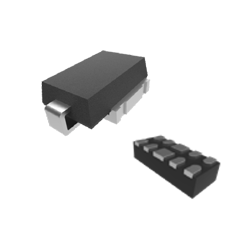/ Enabling a Sustainable and Efficient Tomorrow
Like standard energy meters, smart meters log electricity usage. However, these intelligent alternatives are quite the upgrade — they track usage down to the millisecond, allowing consumers to take advantage of variable pricing based on peak hours and seasons.Smart energy meters also enable faster responses to electrical issues due to their ability to detect surge voltages and harmonic distortions in real-time. They also monitor and track outages and power quality to ensure optimal reliability.
Another key benefit? Smart energy meters promote a convenient and sustainable way forward for renewable energy. These innovative devices align energy use with production, empowering customers to sell their home-generated power and send it back to the power grid, where it can be utilized when needed.
/ Application Considerations
When designing smart energy meters, engineers should consider several factors to ensure safe, stable operation, including:
- Accuracy and precision - smart meters are only effective if they can consistently measure energy consumption with unquestionable accuracy in a range of loads and conditions
- Communication - robust and seamless communication is required for transmitting data to the utility provider as well as consumer devices for monitoring usage
- Interoperability - integration with various home and grid electrical systems while complying with all industry standards is paramount
- Security - because utilities are an attractive target, strong, fail-safe cybersecurity measures must be in place to protect against unauthorized access or data breaches
- Durability and reliability - it’s imperative that designs are robust enough to handle demanding environmental conditions such as temperature extremes, humidity, electrical surges, and transients
- User interface - interfaces for both utility workers and consumers should be simple and intuitive to operate
- Power quality measurement - tracking and reporting electrical quality issues requires reliable monitoring of voltage fluctuations and harmonic distortion
- Remote firmware updates - as the technology evolves, remote software updates allow for trouble-free upgrades
- Tamper detection - features to detect tampering or damage to the system or the theft of electricity are a necessity
- Regulatory compliance - smart meters must comply with all national and international standards for safety, performance, and emissions
- Maintenance - easy access to key components enables faster maintenance and repairs to ensure long-term operation while reducing downtime
- Energy harvesting - smart meter designs may include features to power the meter with harvested energy to reduce the need for external power


